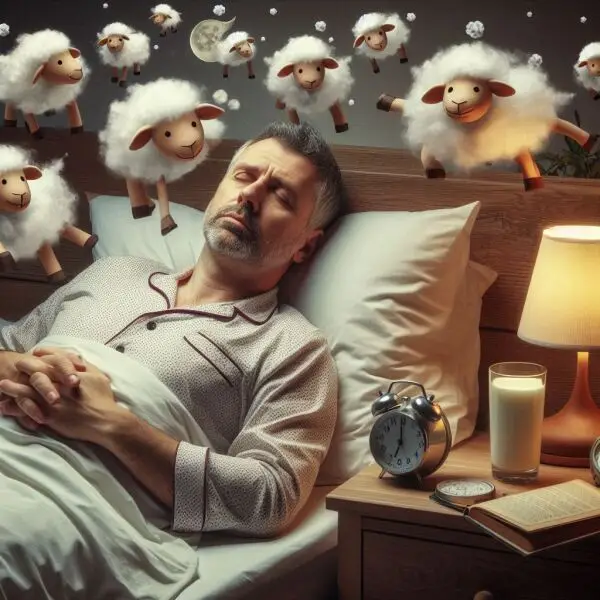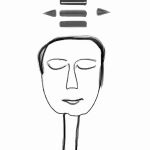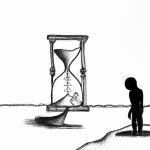The different types of insomnia and how to combat them
Researchers from the Netherlands and Australia discover new implications of sleep through magnetic resonance imaging. Learn how it can improve your rest!...
Table of Contents
- Insomnia: a monster that stalks humanity
- A journey into the brain: the discovery
- The importance of classifying insomnia
- Treatments: Don't resign yourself!
- Final thoughts: Sleep is sacred
Follow Patricia Alegsa on Pinterest!
Insomnia: a monster that stalks humanity
Have you ever woken up at three in the morning, staring at the ceiling and wondering why the world can't be a place where we all sleep like babies? If you are part of the 10% of the world population that suffers from insomnia, you know exactly what I’m talking about.
According to a recent study by a team of neuroscientists from the Netherlands and Australia, sleepless nights are not the same for everyone.
Yes, you read that right! And although it may not seem like it, this finding could change the way insomnia is treated.
I also suggest reading this article:Sleeping little leads to dementia and serious health problems
Imagine being able to see your brain while you sleep. Well, that’s exactly what these researchers did with magnetic resonance imaging.
A journey into the brain: the discovery
Imagine being able to see your brain while you sleep. Well, that’s exactly what these researchers did with magnetic resonance imaging.
By analyzing over 200 brains of people with insomnia, they found different patterns of neuronal connections that indicate there are several types of insomnia.
This is not just a curious detail; it is a significant breakthrough in the search for more effective treatments.
Yes, we could finally stop trying every pill as if we were guinea pigs! Tom Bresser, the neuroscientist who led the study, mentioned that if each subtype of insomnia has a different biological mechanism, then treatments should also be different.
Can you imagine a world where, instead of “take this pill and that’s it,” the doctor tells you “you need this, and you need that”? It sounds like a dream we would all like to have.
The president of the Argentine Association of Sleep Medicine, Stella Maris Valiensi, made a significant contribution by pointing out that this research, although limited, is a first step towards the scientific classification of insomnia.
The importance of classifying insomnia
The president of the Argentine Association of Sleep Medicine, Stella Maris Valiensi, made a significant contribution by pointing out that this research, although limited, is a first step towards the scientific classification of insomnia.
Until now, treatments were a bit like throwing darts in the dark. But with this new information, we could be on our way to more personalized approaches.
Seen another way, if your insomnia is due to anxiety or stress, that is a path to follow. But if it is caused by other factors, it could be a completely different journey. A whole puzzle that science is now starting to solve!
Insomnia has treatment, and you don't have to resign yourself to living in a state of perpetual drowsiness.
Seen another way, if your insomnia is due to anxiety or stress, that is a path to follow. But if it is caused by other factors, it could be a completely different journey. A whole puzzle that science is now starting to solve!
Treatments: Don't resign yourself!
Insomnia has treatment, and you don't have to resign yourself to living in a state of perpetual drowsiness.
The options range from sleep hygiene techniques to cognitive-behavioral therapy. So, if you ever thought there was nothing you could do, think again.
Did you know that sleep hygiene measures are like the rules of the game?
Did you know that sleep hygiene measures are like the rules of the game?
Maintaining a dark, cool, and quiet environment, avoiding screens before bedtime, and establishing a routine are steps that can help you sleep better.
Additionally, don't forget to consult with a health professional. It's vital to discuss your sleep habits and any physical symptoms you experience.
I suggest you keep reading:I solved my sleep problem in 3 months: let me tell you how
The research from the Netherlands and Australia not only gives us hope but also highlights the importance of understanding that each person is a world. If you suffer from insomnia, remember that you are not alone. Science is advancing, and soon you might find the treatment that truly works for you.
So, before you dive into that endless search for the magic pill, consider this new information.
Final thoughts: Sleep is sacred
The research from the Netherlands and Australia not only gives us hope but also highlights the importance of understanding that each person is a world. If you suffer from insomnia, remember that you are not alone. Science is advancing, and soon you might find the treatment that truly works for you.
So, before you dive into that endless search for the magic pill, consider this new information.
Are you ready to take control of your nights? Say goodbye to counting sheep and hello to restorative sleep!
Subscribe to the free weekly horoscope
Aquarius Aries Cancer Capricorn Gemini Leo Libra Pisces Sagittarius Scorpio Taurus Virgo
-
 What does it mean to dream of ghosts?
What does it mean to dream of ghosts?
Discover the mysterious world of dreams with our article: What does it mean to dream of ghosts? Unravel the hidden meanings behind your dreams and learn how to interpret them! -
 What does it mean to dream of cherry fruits?
What does it mean to dream of cherry fruits?
Discover the meaning of dreaming of cherry fruits: is it an omen of love, or does it symbolize economic prosperity? Find out everything in our article! -
 Hobbies improve mental health and happiness
Hobbies improve mental health and happiness
Discover how creative hobbies improve mental health: a British study reveals that arts and crafts promote happiness and emotional well-being. -
 Sleeping little causes dementia and serious health problems
Sleeping little causes dementia and serious health problems
The latest scientific studies on sleep point to a relationship between sleep problems and dementia. Discover how to improve and prevent this serious issue. -
 What does it mean to dream of oil spills?
What does it mean to dream of oil spills?
Discover the meaning behind oil spill dreams and how they can reflect your emotions and relationships - read our article now!
I am Patricia Alegsa
I have been writing horoscope and self-help articles professionally for over 20 years.
Subscribe to the free weekly horoscope
Receive weekly in your email the horoscope and our new articles on love, family, work, dreams and more news. We do NOT send spam.
Astral and numerological analysis
-
 Discover your future, secret personality traits and how to improve in love, business and life in general
Discover your future, secret personality traits and how to improve in love, business and life in general
-
 Online Dream Interpreter: with artificial intelligence
Do you want to know what a dream you had means? Discover the power of understanding your dreams with our advanced online dream interpreter using artificial intelligence that responds to you in seconds.
Online Dream Interpreter: with artificial intelligence
Do you want to know what a dream you had means? Discover the power of understanding your dreams with our advanced online dream interpreter using artificial intelligence that responds to you in seconds.
-
 What does it mean to dream of firemen?
What does it mean to dream of firemen?
Discover the hidden meaning behind firefighter dreams in this article. Are you experiencing an emergency situation in your life? Read more! -
 The 5 best infusions for sleeping: proven by science
The 5 best infusions for sleeping: proven by science
Do you have trouble sleeping? Discover the best natural infusions, from relaxing chamomile to magical valerian, to achieve nights of deep rest and wake up full of energy. Say goodbye to insomnia with these drinks! -
 How to position mirrors in your home to balance energy, according to Feng Shui
How to position mirrors in your home to balance energy, according to Feng Shui
Discover how to use these elements to attract positive energy and create a balanced and revitalizing environment in your home. Transform your space now! -
 What does it mean to dream of chimneys?
What does it mean to dream of chimneys?
Discover the meaning of dreaming about fireplaces in this article. Does it represent the warmth of home or a need to escape? Find answers here. -
 What does it mean to dream of dizziness?
What does it mean to dream of dizziness?
Discover the true meaning behind the dizziness in your dreams. What are your dreams trying to tell you? Read our article and find out right now! -
 I wake up at 3 am and I can't go back to sleep, what should I do?
I wake up at 3 am and I can't go back to sleep, what should I do?
Can't fall back asleep after waking up at 2, 3 or 4 am? Here's how to solve this distressing sleep problem. -
 What does it mean to dream about the weather?
What does it mean to dream about the weather?
Discover the meaning of your dreams about time and how they influence your life. Do you long for the past or fear the future? Find answers in this article! -
 What does it mean to dream of zombies?
What does it mean to dream of zombies?
Discover the hidden meaning behind your zombie dreams, read our article and find out how to interpret this dream and make better decisions in your life! -
 What does it mean to dream of musical notes?
What does it mean to dream of musical notes?
Discover the meaning of dreaming of musical notes in this article. What message is your subconscious transmitting to you through music? Find out here! -
 What does it mean to dream of loaves of bread?
What does it mean to dream of loaves of bread?
Discover the mysterious meaning behind dreams with loaves of bread. Does it symbolize abundance or the need for emotional nourishment? Find answers in our article! -
 How a great love will transform your life according to your zodiac sign
How a great love will transform your life according to your zodiac sign
Discover how love can transform you according to your zodiac sign. Are you ready to learn how a great love can impact your life? -
 Cooper Barnes: sexier than ever!
Cooper Barnes: sexier than ever!
Cooper Barnes, with his dazzling smile and mischievous gaze, combines talent, impeccable style, and contagious humor. An irresistible British charm that wins hearts! -
 The Important Lesson You Can Learn About Love According to Your Zodiac Sign
The Important Lesson You Can Learn About Love According to Your Zodiac Sign
Discover the valuable lessons about love tailored to your zodiac sign and dare to learn, no matter the challenges that may arise.